Going to the Source. Participatory research worthy of the Hans. H. Ruthenberg Award 2024
Two very different success stories, one conclusion: going to the people and connecting with the local producers is what makes research come alive.
At this year’s Hans. H. Ruthenberg Awards which took place at the Tropentag 2024 two exceptional stories of two remarkable women were recognized by 400 scientists from all over the world. Although addopting unrelated scientific methods, both showcase the importance of participatory research and its role not only in science but also in shaping the personal stories of the people behind the research.
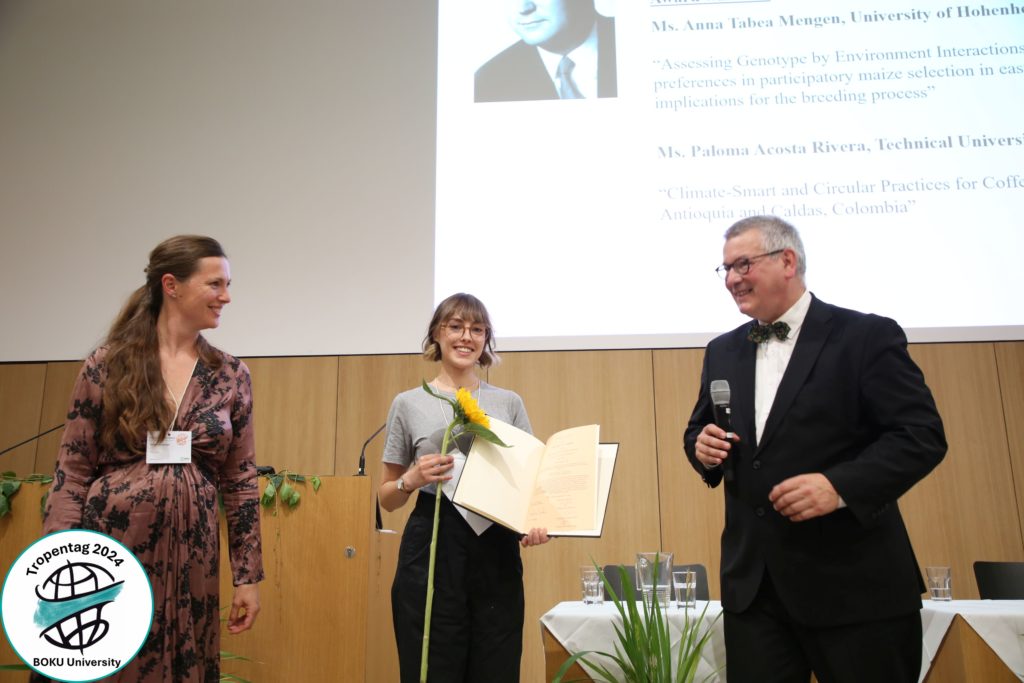
Anna Tabea Mengen
Her name is Anna Tabea Mengen and she is an aspiring young scientist in the field of participatory plant breeding taking a Hans H. Ruthenberg Award for Graduates home from the Tropentag Conference 2024.
With her work on “Assessing genotype by environment interactions and farmers’ preferences in participatory maize selection in eastern Zambia and implications for the breeding process”, her effortless presentation style, and overall charm she managed to capture the attention of the audience at the Plenary. In an interview with us, she shared her academic and personal experiences.
Anna started with a Bachelor’s in Agricultural Biology at the University of Hohenheim, where she first discovered her passion for plants. A Master in Crop Science, and specifically Plant Breeding, followed, which brought her to her current supervisor Prof. Dr. Bettina Hausmann and opened up a world of new research methods through her choice of elective lectures. That is also how she found the topic of her Master’s thesis and decided on her own accord to use the opportunity and travel to eastern Zambia to meet the farmers, whose data she was analyzing for her research.
The trip and everything around it had to be organized by Anna herself, as well as securing the funding. By being outside Europe for the first time and managing her workload on her own, she got to acquire valuable skills in project management.
She stayed in Africa for 1 month. A month filled with new insights and experiences. What made a big impression on her was the actual participation of the farmers. They were actively bringing valuable input to the table and sharing their concerns and views with her. Their preferences, unique to the geographical area and conditions, were formed by a myriad of diverse and complex factors, that shape the environment in those remote places of the world. This was precisely what Anna took home with her – a better understanding of how important it is for researchers to tailor their work and methodologies to the demands and needs of the producers on the ground. Otherwise, conventional breeding techniques will consistently fall short of meeting all the specific requirements coming from such marginal environments.
Anna’s interest in the world’s marginal areas and the idea of adjusting current breeding techniques to better fit their conditions is at the base of her research and motivated her to continue her plant breeding academic career by accepting a PhD position in the area of plant physiology and yield stability.
Her advice to other young and ambitious scientists: “Find the right people! With the right supervisor, doors will be opened”. Anna feels very lucky to have found her supervisor, as she played a decisive role in her academic career.
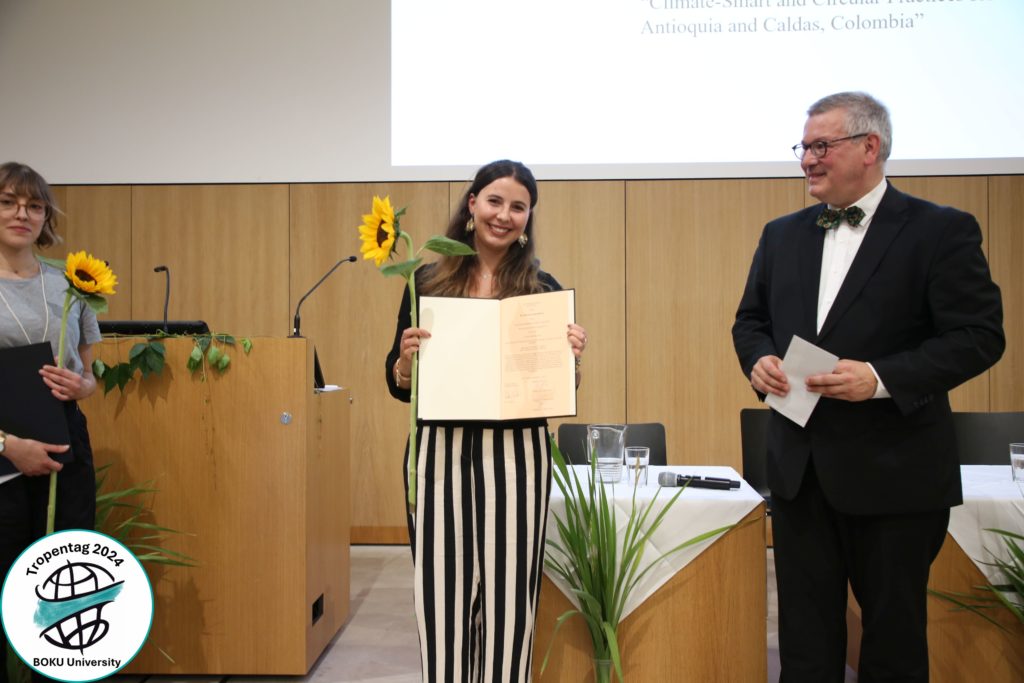
Paloma Acosta Rivera
Miss Rivera’s scientific work which won her the Hans H. Ruthenberg award entitled “Climate-smart and circular practices for coffee farming in Antioquia and Caldas, Colombia” is more than just a Master’s thesis. It changed her life for the better and gifted her with a second family.
After finishing her Bachelor’s in Economics in Bogota, Paloma found herself working for an Impact Investment Fund focused on Latin America and the Caribbean, which was her first contact with the aspect of sustainability in the business world. This was also the call she needed to change career paths and stay true to the past young version of her, that was always so close to nature.
This brought her to Europe, where she started her Master’s degree at the Technical University of Munich in Sustainable Resource Management. Throughout her studies, Paloma did get the chance to travel to Peru to conduct research in the area of electricity provision and connect on the ground with the people affected. This changed her perception of science and paved the way for the next big opportunity: the chance to go back home, to Colombia for a matter close to her heart: coffee production and experience her country from a different perspective.
The project took her to 157 small-holder farmers and countless heartfelt personal stories, and showed her a world entirely different than the one she was used to – one filled with depth, regional disparities, and “real world” challenges. Throughout the 6 weeks of data collection, one of the major obstacles she faced was the great distance she had to cover periodically between locations to gather all the necessary data. One person had to accompany her throughout the motorcycle journey and thus had to sometimes give up a whole day of work.
Just like Anna, Paloma had to organise everything for the journey on her own. Finding and convincing the right partners proved to be harder than expected. Ultimately she managed to win over 3 cooperatives and 2 companies to support her research and to agree to participate.
Winning the prize for her research not only makes her rightfully proud and so very happy but most importantly serves as recognition for all the personal stories, emotions, and dynamics that went into the creation of her work. She developed a very strong connection with the local people. Her first host family in Antioquia, in northwest Colombia, became her second family, sharing with her their dearest and earnest concerns. Paloma never imagined that a simple Master’s thesis could become such a big part of both one’s professional and personal path.
Her advice to all junior scientists, eager to trigger change in the world: Go out there and experience it for yourselves, see it with your own eyes, and then you will know. You will know how to combine the two very different but complementary worlds: that of the written theory and of the empirical evidence.
The way forward
A shift in science is taking place. New methods, multidimensional challenges, and higher stakes all shape the academic world of tomorrow. Through the stories of Anna and Paloma, the dedication and passion they invested, and the hopes they have for the future, one cannot help but feel inspired and optimistic. Only thorugh participatory research are we given the opportunity to look beyond the conventional way of thinking and understand the realities and intricacies of the world we live in.
Author: Bojidara Ilieva

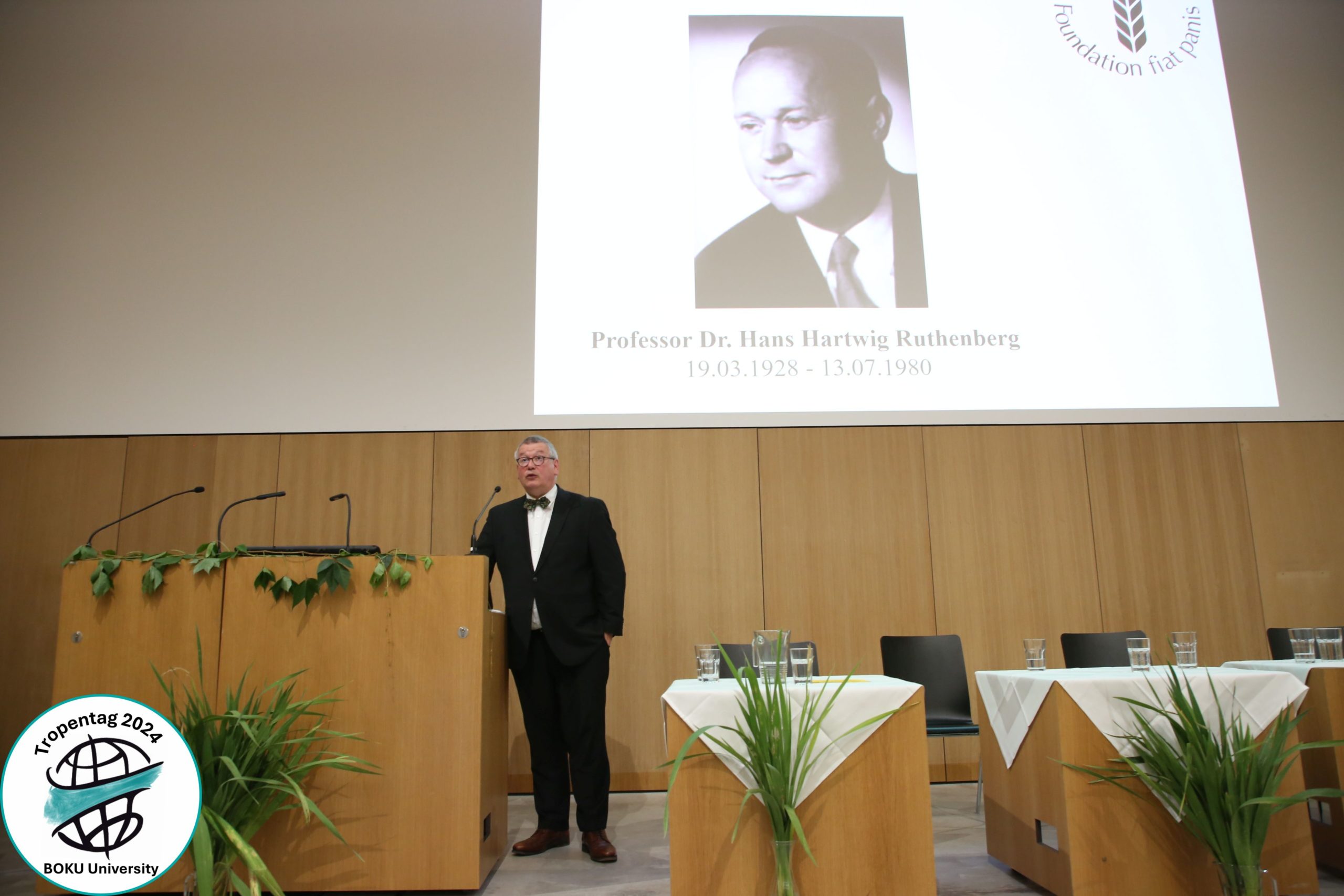
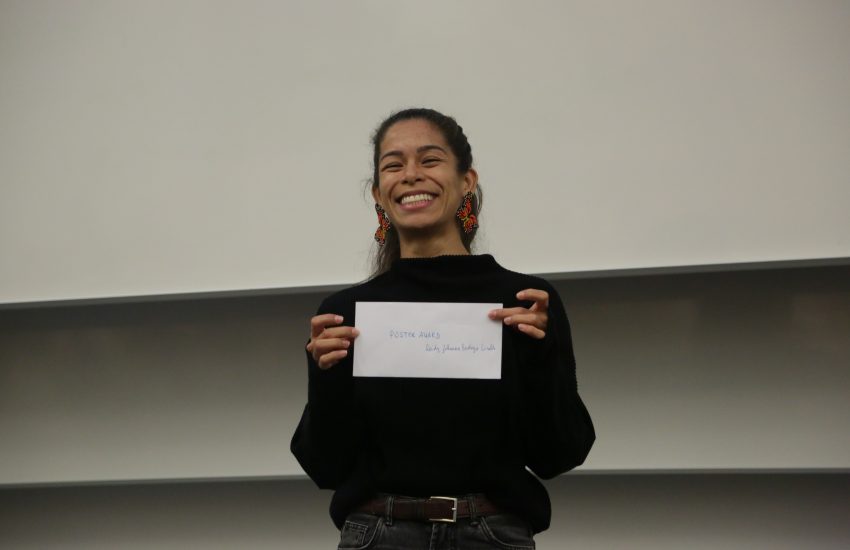
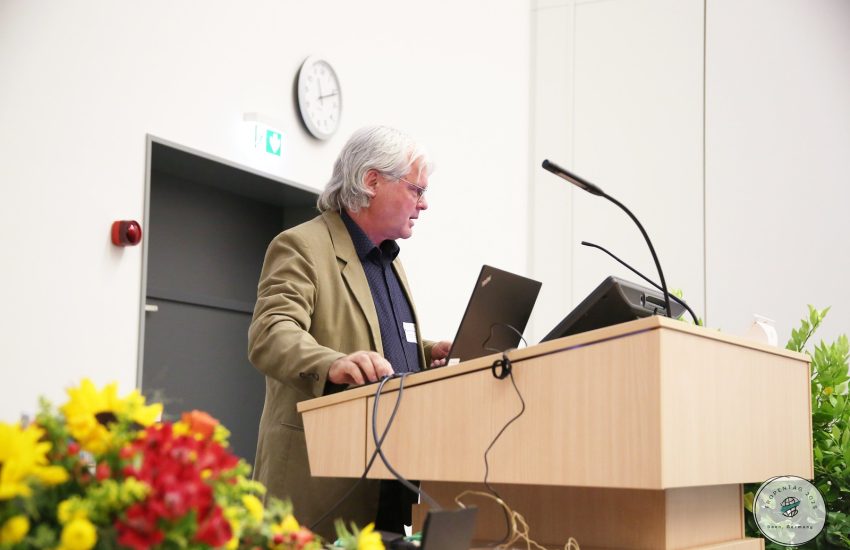
It’s a new concept. Let’s hope we change our mind set. This thought and concept to be described to grass roots level so that these ideas are clear to common men. It’s a life changing method.